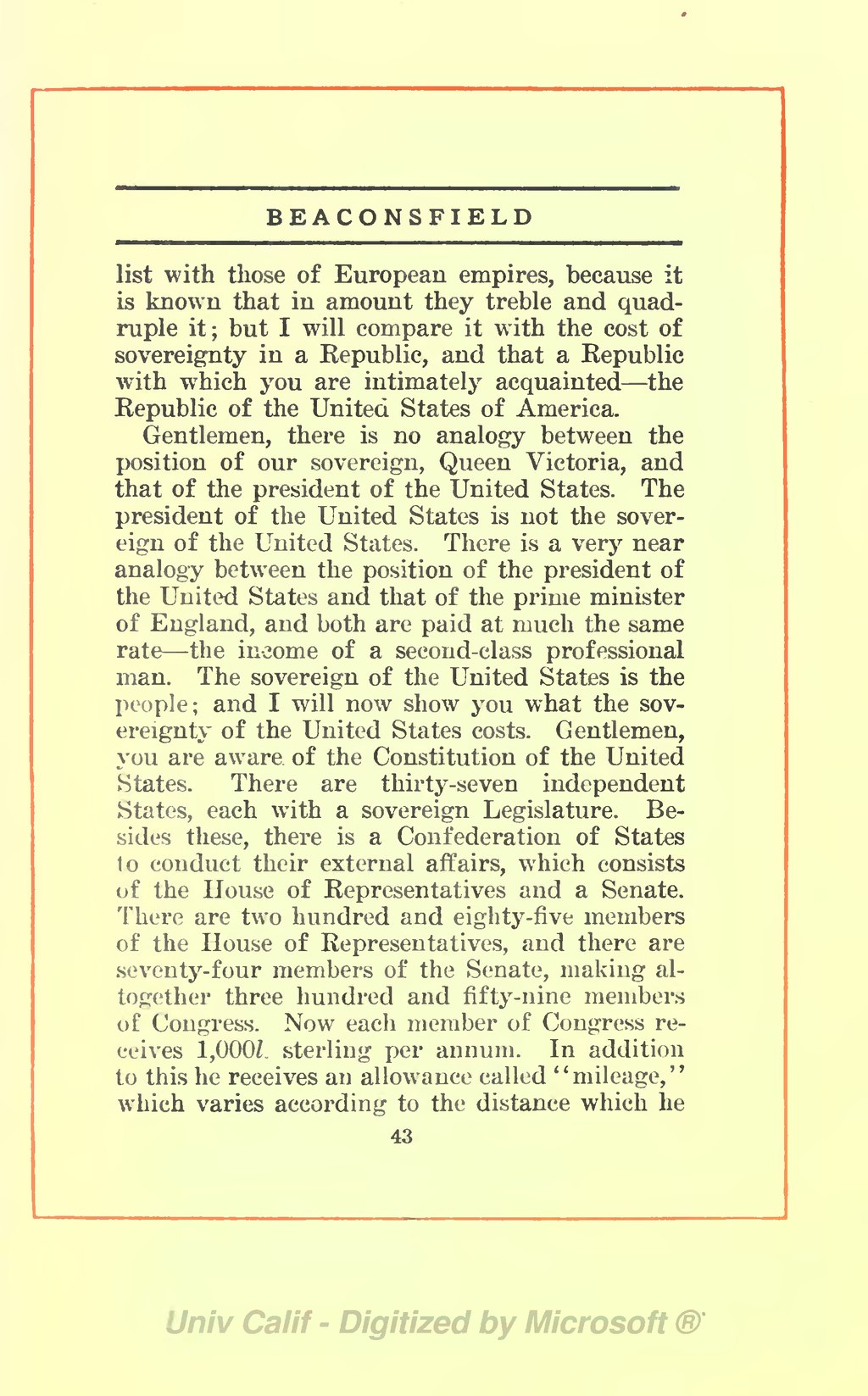list with those of European empires, because it is known that in amount they treble and quadruple it; but I will compare it with the cost of sovereignty in a Republic, and that a Republic with which you are intimately acquainted—the Republic of the United States of America.
Gentlemen, there is no analogy between the position of our sovereign, Queen Victoria, and that of the president of the United States. The president of the United States is not the sovereign of the United States. There is a very near analogy between the position of the president of the United States and that of the prime minister of England, and both are paid at much the same rate—the income of a second-class professional man. The sovereign of the United States is the people; and I will now show you what the sovereignty of the United States costs. Gentlemen, you are aware, of the Constitution of the United States. There are thirty-seven independent States, each with a sovereign Legislature. Besides these, there is a Confederation of States to conduct their external affairs, which consists of the House of Representatives and a Senate. There are two hundred and eighty-five members of the House of Representatives, and there are seventy-four members of the Senate, making altogether three hundred and fifty-nine members of Congress. Now each member of Congress receives 1,000l. sterling per annum. In addition to this he receives an allowance called "mileage," which varies according to the distance which he
